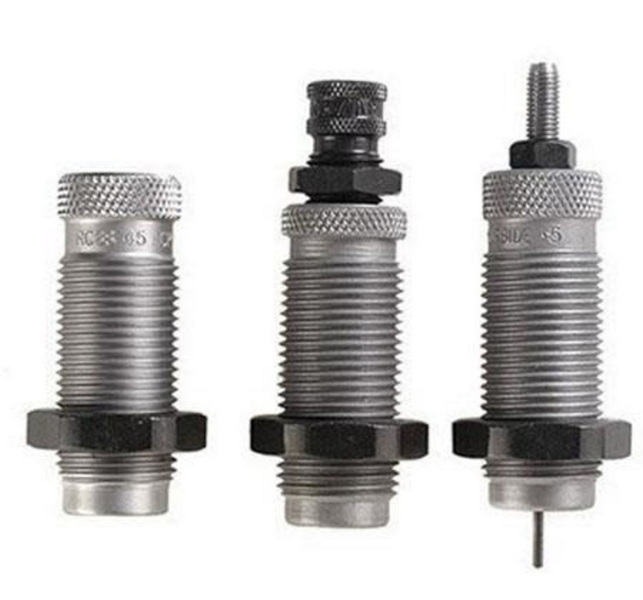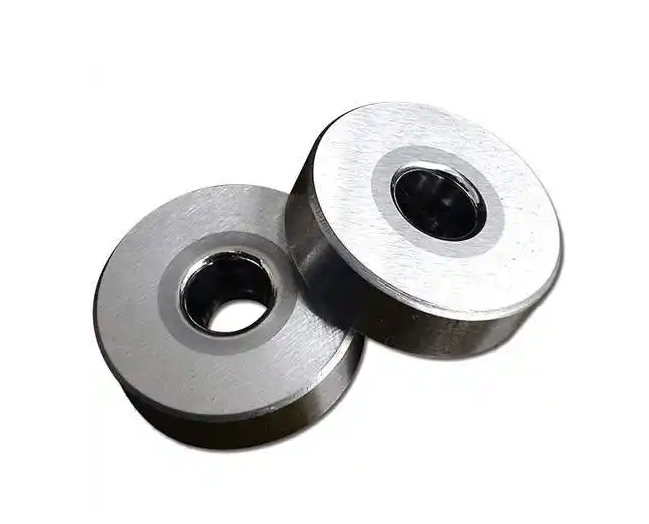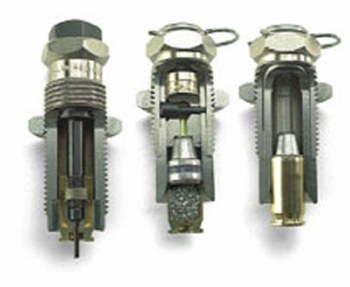Content Menu
● Introduction
● Understanding 380 Carbide Dies
>> Benefits of Using 380 Carbide Dies
>>> A. Durability and Longevity
>>> B. Ease of Use
>>> C. Precision and Consistency
● Types of 380 Carbide Dies
>> A. Full Length Sizing Die
>> B. Bullet Seating Die
>> C. Powder Thru Expanding Die
>> D. Carbide Factory Crimp Die
● Choosing the Right 380 Carbide Die Set
● Conclusion
● Related Questions
>> 1. What is the difference between carbide and steel dies?
>> 2. How long do carbide dies last compared to steel dies?
>> 3. Can I use carbide dies for other calibers?
>> 4. Do I need to clean carbide dies differently than steel dies?
>> 5. Are carbide dies worth the investment for occasional reloaders?
Introduction
Reloading ammunition is a popular practice among firearm enthusiasts, offering both cost savings and the ability to customize loads for specific needs. Among the various tools used in the reloading process, carbide dies have gained significant attention for their durability and efficiency. This article explores the benefits of using 380 carbide dies, particularly for those reloading 380 ACP ammunition, a widely used caliber in handguns.
Understanding 380 Carbide Dies
Carbide dies are specialized tools used in the reloading process to shape and size cartridge cases. Unlike traditional steel dies, carbide dies are made from a harder material that provides several advantages. The 380 ACP (Automatic Colt Pistol) is a popular caliber, known for its manageable recoil and effectiveness in self-defense situations. Understanding the unique characteristics of 380 carbide dies is essential for any reloader looking to enhance their ammunition quality.

Benefits of Using 380 Carbide Dies
A. Durability and Longevity
One of the most significant advantages of carbide dies is their durability. Carbide is a much harder material than steel, which means it can withstand the wear and tear of reloading much better. This durability translates to a longer lifespan for the dies, making them a worthwhile investment for serious reloaders. While steel dies may require replacement after several thousand rounds, carbide dies can last for tens of thousands of rounds without losing their effectiveness.
B. Ease of Use
Carbide dies offer a significant advantage in terms of ease of use. One of the most notable features is that they do not require case lubrication. This is a game-changer for many reloaders, as it simplifies the reloading process. Without the need for lubrication, reloaders can save time and reduce the mess associated with applying and cleaning off lubricant. This ease of use makes carbide dies particularly appealing for beginners and experienced reloaders alike.
C. Precision and Consistency
Precision is crucial in reloading, as it directly affects the performance of the ammunition. Carbide dies provide a high level of precision in sizing and seating bullets. The consistent sizing ensures that each cartridge is uniform, which is essential for reliable feeding and ejection in firearms. This consistency leads to improved accuracy and performance, making carbide dies a preferred choice for those who prioritize quality in their ammunition.
Types of 380 Carbide Dies
When reloading 380 ACP ammunition, several types of carbide dies are available, each serving a specific purpose in the reloading process.
A. Full Length Sizing Die
The full-length sizing die is designed to resize the entire cartridge case, ensuring that it fits properly in the chamber of the firearm. This die is essential for reloaders who use brass that has been fired in different firearms, as it helps to eliminate any variations in case dimensions. Proper resizing is crucial for reliable chambering and extraction.
B. Bullet Seating Die
The bullet seating die is responsible for placing the bullet into the cartridge case at the correct depth. This die ensures that the bullet is seated firmly and consistently, which is vital for maintaining accuracy. Proper bullet seating also helps to prevent issues such as bullet setback, which can lead to dangerous pressure spikes.
C. Powder Thru Expanding Die
The powder thru expanding die serves a dual purpose: it expands the case mouth to accept the bullet and allows for the introduction of powder into the case. This die is particularly useful for reloaders who want to streamline their process, as it combines two steps into one. The ability to expand the case mouth without additional tools saves time and enhances efficiency.
D. Carbide Factory Crimp Die
The carbide factory crimp die is used to apply a crimp to the cartridge, ensuring that the bullet remains securely in place during feeding and firing. A proper crimp is essential for reliable performance, especially in semi-automatic firearms. This die helps to prevent bullet movement, which can lead to malfunctions.

Choosing the Right 380 Carbide Die Set
When selecting a die set for reloading 380 ACP ammunition, several factors should be considered:
- Quality of Materials: Look for die sets made from high-quality carbide to ensure durability and performance.
- Brand Reputation: Established brands like Lee Precision and RCBS are known for their reliable products and customer support.
- User Needs: Consider your reloading volume and specific requirements. Some sets come with additional dies for more advanced reloading techniques.
- Budget: While carbide dies may have a higher upfront cost, their longevity and performance can lead to savings in the long run.
Conclusion
Using 380 carbide dies for reloading offers numerous benefits, including durability, ease of use, and precision. These advantages make carbide dies an excellent choice for both novice and experienced reloaders. By understanding the different types of carbide dies available and how they contribute to the reloading process, enthusiasts can enhance their ammunition quality and overall shooting experience.

Related Questions
1. What is the difference between carbide and steel dies?
Carbide dies are made from a harder material, providing greater durability and requiring no lubrication, while steel dies are more prone to wear and require lubrication for resizing.
2. How long do carbide dies last compared to steel dies?
Carbide dies can last for tens of thousands of rounds, while steel dies may need replacement after several thousand rounds due to wear.
3. Can I use carbide dies for other calibers?
Yes, carbide dies are available for various calibers, making them versatile tools for reloaders.
4. Do I need to clean carbide dies differently than steel dies?
Carbide dies can be cleaned similarly to steel dies, but they do not require lubrication, which simplifies maintenance.
5. Are carbide dies worth the investment for occasional reloaders?
Yes, even for occasional reloaders, carbide dies can provide better performance and longevity, making them a worthwhile investment.
















